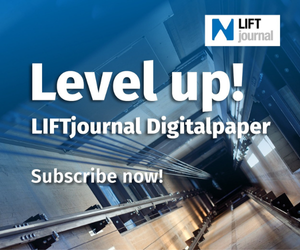Women in the Lift Industry in Europe
Five years of professional life in the lift business in Germany brought up the plan to look into the topic of women in the lift industry in Europe.
A questionnaire and a direct mailing brought some answers and interviews. After six weeks of intensive research in summer 2016 the results were disappointing: Nearly none of the European Lift Associations, "Big 4" or SMEs are aware of the topic and its implications.
Certainly, the few women in the industry feel that the topic is important for themselves and their career. But it is also vital for the future of the lift industry, who is looking for more qualified personnel.
Effort on diversity
As one of the first companies in the industry, Schindler/CH made an effort on diversity. The company set up a diversity committee of eight women and six men reporting directly to the global head of Corporate Human Resources. Also ANACAM, one of the Italian Lift Associations, started a campaign called "Anacam Pink" in October 2017.
In September 2017, the authoress started the WoLIE Initiative with a presentation at the Lift & Escalator Symposium Northampton/UK. The new WoLIE Initiative assembles all females working in the lift industry in Europe and beyond, especially in the technical field or as managers. Details can be found on www.WoLIE.eu where you can also apply for personal, company or institutional sponsorship.
A protected space
As they are so few, WoLIE gives females a protected space to exchange information and ideas with other females in the business. WoLIE welcomes also males, who want to support females in the lift industry.
The same applies to companies looking for example for more female personnel as well as to institutions supporting diversity or gender issues. WoLIE also wants to make the lift industry aware of the few women working in this field.
No statistic on WoLIEs
Statistics from Destatis in October 2012 state, that in Europe more males 75% are working than women 62%. In architecture and the building industry, we have a percentage of ca. 37% working females. In management, we see ca. 34% females. In part-time jobs we have 32% females and only 9% males, 46% of the women claiming this being due to family duties. And - women receive a 16% lower salary for their work than men.
As there is no statistic on WoLIEs available yet, an indirect approach might help. The data from the websites of the European Lift Associations in summer 2016 list 101 active persons, mainly honorary board members and technical committee chairs, thereof 16 women = 16%.
Looking at lift conferences
Another approach is looking at lift conferences. At the Heilbronner Aufzugstage 2017/Germany, we had 327 participants, thereof 17 females = 5%. A similar number showed up at the Lift Symposium Northampton 2017/UK with 126 participants, thereof 8 females incl. staff = 16% (Fig. 2).
Following the Symposium, the company Digital Advanced Control based in Daventry/Northamptonshire/UK made a headcount of their staff in September 2017. They found 35 employees, thereof 9 females = 26%. Their women are working in all fields from one director over three in sales/finances to five in technology. Therefore, the average number of WoLIEs is assumed to be somewhere around 15%.
Germany at the political forefront
"Do not focus only on kids! Keep in touch with your job as much time as possible!" said Anja Blain, since 1999 General Manager of Blain Hydraulics/Heilbronn/Germany. Professionally, she is an industrial business manager, studied languages and works closely with a good team of engineers. In the company, she has another 13 women, some are in the assembly lines, but mostly they are in the administration.
Being a woman working in the man’s world sometimes gives her a women’s bonus. Anja Blain sees Germany at the political forefront of the women’s movement. What helps are things like Kitas (Kindergarten for kids below the school age) and Elternzeit (paid time-off for both parents).
Undine Stricker-Berghoff, Dipl.-Ing. (TU) CEng MEI VDI, www.ProEconomy.de , Travemuende/Germany






















Write a comment